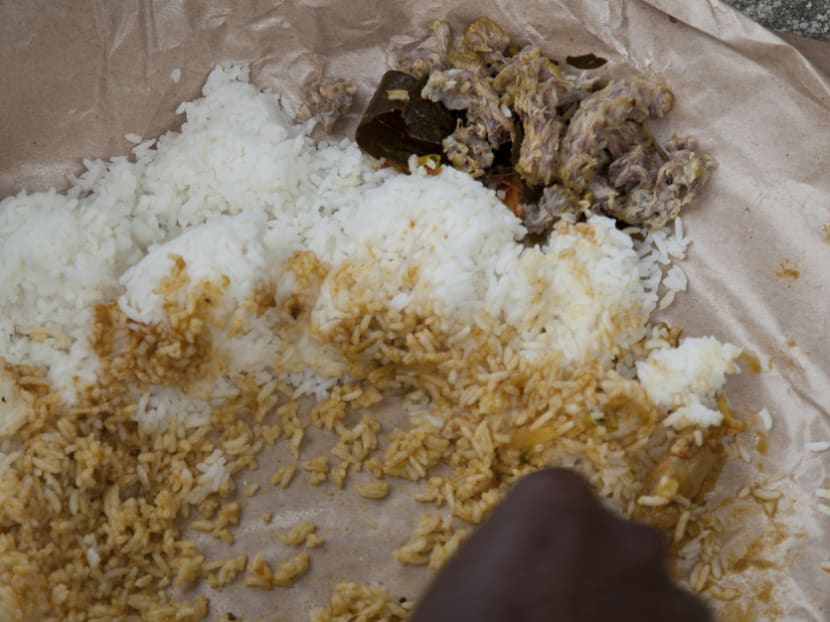Netizens outraged over foreign worker meals
SINGAPORE — At Hiap Seng Engineering, its foreign workers are provided with three meals a day, all fully paid for by the company itself.
SINGAPORE — At Hiap Seng Engineering, its foreign workers are provided with three meals a day, all fully paid for by the company itself.
The company, which employs foreign workers to build petrochemical plants on Jurong Island, decided to engage a food-catering company 10 years ago after discovering what its workers were doing to save money.
“Some skipped their meals to save the dollars ... They didn’t even take their lunch. In this line of work, they are exposed to higher risk of work accidents. The solution is to provide them with catered meals,” said the company’s human resource manager Darren Tan.
To ensure that the catered food meets the nutrition needs of the workers, the meals are evaluated by Hiap Seng Engineering’s management daily.
The company’s food-catering practices in relation to its foreign workers stand in contrast to those adopted by some companies cited in a study by the National University of Singapore (NUS) and HealthServe, a non-governmental organisation.
The study, which interviewed over 60 Bangladeshi workers living in the Tai Seng area, revealed that their meals usually consisted of a pile of rice and some tinned meat or curry that were often delivered hours in advance.
TODAY’s report on the study, published yesterday, has generated much interest online, with some netizens expressing outrage and calling on the Ministry of Manpower and other government agencies to act.
Ms Saranya Krishnan wrote on TODAYonline: “Is it not a basic civil right of these workers to receive proper food and nutrition to keep them going?”
Mr Mike Chan, described the situation as “utterly inhumane”, while Ms Linda Chong said: “It is too unfair. Without these foreign workers, we possibly would not have buildings and clean places to live in.”
Caterer TS Group said those guilty of providing such sub-standard food are often illegal caterers that are not licensed by the National Environment Agency (NEA). “To save costs, they (illegal caterers) send both breakfast and lunch (at the same time) ... They operate on a low margin, which means they have to compromise on quality to cut corners,” said TS Group’s owner Sham Kumar. His firm charges about S$130 per worker, while illegal caterers may sell their meals for S$80 to S$90.
However, for caterer Elsie’s Kitchen, lower pricing does not mean a drop in quality. “Even the cheapest meals available in our menu (priced at S$2) meet nutritional guidelines and there is no compromise on quality,” said spokesperson Kyzer Ong.
Mr Kumar also pointed out that only a small number of firms here cater food for their foreign workers. “Most firms these days leave it to the workers to decide for themselves,” he said.
His views were echoed by Dormitory Association of Singapore (DAS) president Kelvin Teo, who felt that more should be done in ensuring that workers get proper storage space at their work sites to store their food.
He said the NEA ought to implement a policy that requires caterers to supply the necessary apparatus to keep the food warm until it is eaten. This will ensure that the food remains edible beyond the four-hour window set by the agency.
Employers, such as Transvert Scaffold and Engineering and Nishimatsu Construction, prefer to give their workers meal allowances, which offer the workers greater flexibility when it comes to deciding on their meal timings.
Mr Shaik Mohamed, director of dormitory operator The MES Group, said giving the workers a choice might not be a bad thing. “They are given the freedom to decide for themselves how they wish to settle their meal options.”
His firm operates four dormitories — three in Jurong and one at Kaki Bukit — that come with a canteen and a convenient store, where workers can get ingredients at a relatively cheaper price, Mr Mohamed said. ADDITIONAL REPORTING BY JORDON SIMPSON










